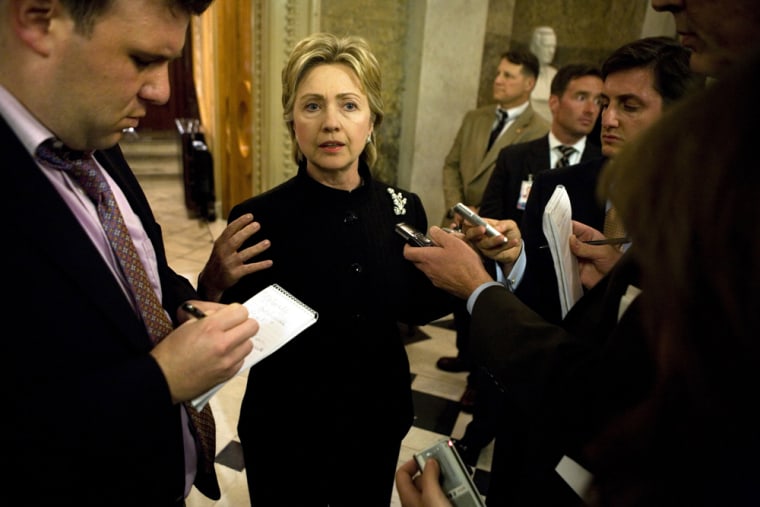America’s lowest-paid workers won a $2.10 raise Thursday, with Congress approving the first increase in the federal minimum wage in almost a decade.
President Bush was expected to sign the bill quickly, and workers who now make $5.15 an hour will see their paychecks go up by 70 cents per hour before the end of the summer. Another 70 cents will be added next year, and by summer 2009, all minimum-wage jobs will pay no less than $7.25 an hour.
For years, the idea of increasing the minimum wage has been stalled by partisan bickering between Republicans and Democrats.
Wrapped into Iraq funding bill
That almost became the fate of this year’s proposal. Democratic leaders attached the provision to the $120 billion Iraq war spending bill, which was vetoed by the GOP-controlled White House on May 1 because Democrats insisted on a pullout date for American troops.
But with the House passing a rewritten bill 280-142 and the Senate 80-14, the end is likely near for the longest stretch without the federal pay floor rising since the minimum wage was established in 1938.
Sen. Edward M. Kennedy, D-Mass., called the increase one of “the proudest achievements of this new Congress.”
“We’ve overcome many obstacles — and faced every procedural trick in the book — to get this minimum-wage increase across the finish line,” Kennedy said. “Democrats stood together, and stood firm, to say that no one who works hard for a living should have to live in poverty.”
White House criticizes size of offsets
Bush announced earlier this year that he supported an increase in the minimum wage.
“We pushed for and very much prefer that it be paired with appropriate offsets for small businesses who would be disproportionately impacted by the minimum-wage increase,” White House spokesman Tony Fratto said. “Unfortunately, the offsets in this bill don’t accomplish that.”
This would be the first change since the minimum wage went from $4.75 to $5.15 on Sept. 1, 1997, under former President Clinton and a Republican-controlled Congress.
The liberal-leaning Economic Policy Institute, a research group in Washington, estimates that 5.6 million workers — or 4 percent of the work force — earn less than $7.25.
15 months of groceries
Currently, a person working 40 hours per week at the current minimum wage of $5.15 makes about $10,700 a year. An increase to $7.25 would boost that to just over $15,000 a year.
The full increase, according to House Education and Labor Committee Chairman George Miller, D-Calif., is enough to pay for 15 months of groceries for a family of three.
More than two dozen states and the District of Columbia already have minimum wages higher than the federal level. Minimum wage workers are typically young, single and female and are often black or Hispanic.
Raising the minimum wage was a key part of Democrats’ midterm election platform. To help make it palatable for Republicans, they added $4.84 billion in tax relief for small businesses to help them hire new workers and offset any cost associated with an increase in the minimum wage.
Critics say move will cost jobs
Republicans had complained earlier that the tax cuts in the House and Senate bills that led up to the final agreement were insufficient, but the inclusion of the provisions in the Iraq war spending bill made it difficult for them to stop them.
“From a small-business standpoint, the House bill was a peanut shell, the Senate bill was peanuts, and the conference agreement is a single shriveled peanut. It is a missed opportunity,” said Sen. Charles Grassley, R-Iowa.
According to the National Restaurant Association, the last minimum wage increase cost the restaurant industry more than 146,000 jobs and restaurant owners put off plans to hire an additional 106,000 employees.
“A minimum-wage increase will cost our industry jobs, and the vital discussion of how to minimize this job loss is getting lost in the debate,” said Peter Kilgore, the group’s acting interim president and chief executive officer.
